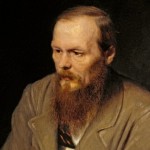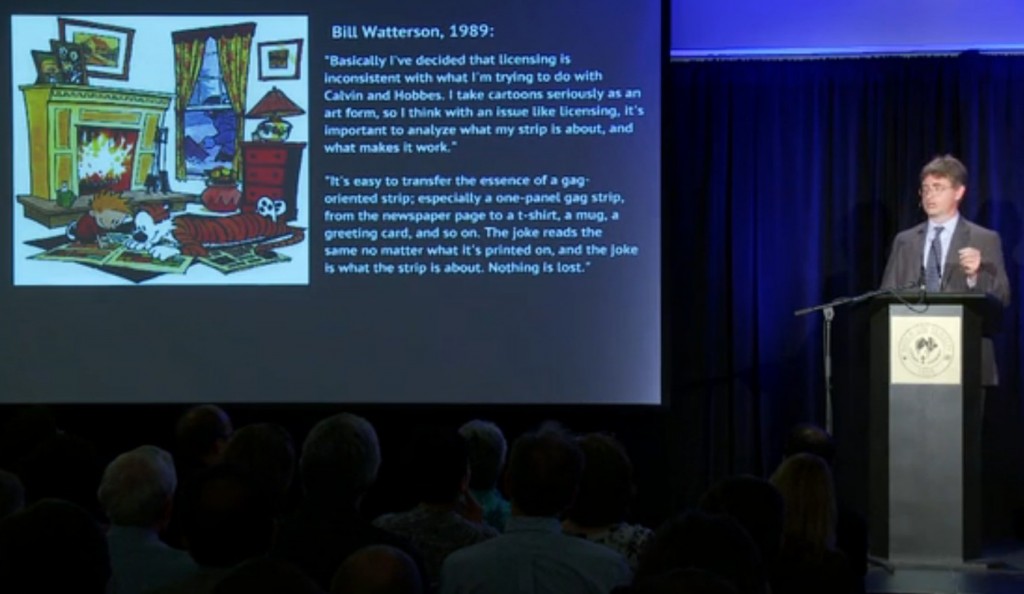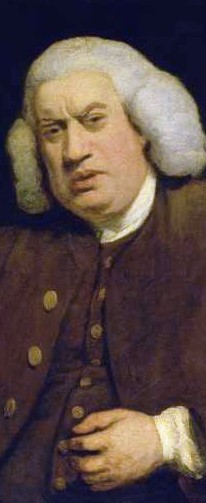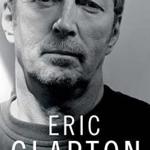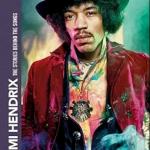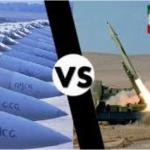Biola’s Torrey Honors Institute has just announced the hiring of Dr. Chris Mitchell, who will begin teaching at Torrey next fall.
As one of the members of the search committee that selected Chris, I’ve had the chance to get to know him over the past few months, and I am excited about adding him to the Torrey faculty. Any academic program always hopes to hire professors who will be a good fit, but when you hire somebody who’s further along in a career and has an established track record, you have a chance to plan for real synergy. There is an obvious and profound synergy between what we do in Torrey and what Chris does as a scholar and as director of the Wade Center. I asked him a few questions on this subject; here are his answers.
Chris, how did you first hear about Biola’s Torrey Honors Institute?
I have been aware of the Torrey Honors Institute for at least a decade. It began when Dr. Donna Thoennes invited me to share with a couple of her classes. Then last March, Dr. Matt Jenson invited me to give an evening talk to a group of Torrey Honors students. I was impressed ten years ago with the program and its students, and I was equally impressed last March.
Torrey follows a great books curriculum and uses Socratic pedagogy. Are you on board with those commitments?
For more than a decade I have been saying that if a person were to simply read the books C.S. Lewis mentions in his autobiography, Surprised By Joy, they would receive a first rate liberal arts education. The exercise of having to think through and to digest the thinking of others is the first step in our training to think through a thing for ourselves. What eighteen years as the Director of the Marion E. Wade Center has shown me is the enormous educational and spiritual value of a broad and deep reading of critical works of literature over a wide range of topics, periods, and cultures alongside an equally critical reading of biblical texts. One value of the Torrey program that stands out is its resistance to what C.S. Lewis called chronological snobbery. That is the conviction that the thinking of the past no longer holds any real significance for the present. The prospect of being in a position to effectively push back against this doctrine as the Torrey Honors program affords, is deeply attractive. So too is its value as it relates to the increasing emphasis on globalization. The experience of encountering past thinking in the context of diverse cultures and ages places one in the position to think rightly about present day thinking and situations very different from one’s own context.
As for pedagogy, here I confess my indebtedness to Dorothy L. Sayers who eloquently argued that the end of all education is to bring a person to be able to intelligently and effectively think through a thing. Over the years I have become increasingly aware of the value of two pedagogical styles that have this as their aim: one, the Oxford tutorial system, and two, the Socratic method. It was a happy discovery to learn that both approaches inform the Torrey Honors Institute. This is not to say that I have ceased to value the lecture approach that informs the majority of our educational system. I do still value that. Rather, I have come to recognize in myself a growing passion to be involved in the non-lecture approach.
We read a lot of Bible and theology in Torrey, and even when we’re reading the (supposedly) non-theological classics, we’re always reading and thinking about them in ways informed by our theological convictions. How do you feel about joining that project?
The matter of being able to skillfully relate our learning of the faith to our learning of the world and our experience of the faith with our experience of the world is central to the life of every believer. It is a truth that informs my own practice and is one of the chief aims of my teaching and mentoring. The fact that the Torrey Honors Institute gives the entire Bible a central place within its curriculum demonstrates a clear commitment to this truth. Moreover, the program’s chosen form of pedagogy lends itself well to effectively achieving this indispensable skill. To be yoked with other like-minded teachers in a program that aims at inculcating this art is, once again, highly attractive.
Teaching in Torrey means you’ll have a few dozen students who you mentor academically and spiritually. That means spending a lot of time meeting with undergraduates from a variety of different majors, not just in your own field, and getting to know them over the course of their entire four years at Biola. That’s a big part of the job of Torrey professors. Is that an attractive part of the job?
I am drawn to the program’s emphasis on personal mentorship both inside and outside the classroom. Here is where I see the aims of curriculum, pedagogy, and faith-learning coalescing in the ultimate aim of producing “citizens for the City of God.” This is a passion of mine and I find the scope it is given within the program farsighted and far-reaching. Not only do I have a passion for this, but over the years my students have consistently emphasized this aspect of my teaching ministry. To be in a position where this is one of the chief focuses of my teaching is a wonderful prospect. Incidentally, my wife, Julie, shares my passion.
Chris, you’re coming to us from a successful career as director of the Wade Center at Wheaton. Why this career transition, and why now?
My interest in teaching in the program is related to where I am at in my career. For the past eighteen years I have had the honor of directing the Marion E. Wade Center at Wheaton College. I can honestly say that I have loved it. But at the same time it has not been at the center of my passion. Let me explain. The teaching, researching, and mentoring aspects of the position all play to my training, personal strengths, and passions. However, the administrative side of the job plays neither to my strengths or passions, and it is this aspect that has increased over the years. As a result, for the past couple of years I have begun to wonder whether it is time for me to pass the Directorship on to someone who is better suited to carry on the Wade’s important ministry. This in turn has caused me to consider where I might use the remaining years of my career most effectively. It is a question of the stewardship of my life experiences, my training, and my pastoral/teaching experience. For some time I have thought that if at some point I were to leave the Wade Center and return to a fulltime teaching position the Torrey program would be the kind of place I believe I could flourish and could invest in with passion.
My interest in the program also relates to the multi-disciplinary profile required of its faculty. Though my formal training is in biblical and theological studies, with an emphasis on historical theology, the past eighteen years as Director of the Wade Center has naturally required me to also work in the fields of literature, philosophy, apologetics, and the arts. What I discovered in the process was the enormous wealth of educational avenues these other disciplines provide us, especially as they pertain to relating our experience and understanding of the faith with our experience and understanding of the world. This is to say that I believe my time at the Wade Center has served to place me in a better position to fulfill the program’s goals for both the classroom and faculty.
You were an adult convert to Christianity. Can you tell us about your conversion?
My coming to Christ coincided with first encounter with the Gospel in November 1972 at the age of twenty-one. I was raised in an unbelieving home in Oregon and I never remember meeting anyone in my school that went to church. My parents were not anti-religious or anti-Christian, they simply were not interested. Consequently I grew up in a sort of religious/spiritual vacuum. Although I remember having spiritual longings, even thoughts about God, they never went further than mere longings.
Then in November of 1972 (at the time I was studying horticulture; it seemed a good fit for a long-haired hippy from Oregon with an organic bent), my older brother cornered me one evening in my parent’s home to tell me that he had become a “born again Christian.” Although his zeal and excitement made me extremely uncomfortable, he somehow managed to get me to commit to come to a Bible study that following Sunday.
That Sunday turned out to be the turning point in my life. There I heard the Gospel for the first time. It was both deeply attractive and deeply repellant at the same time. I panicked, and before I knew what I was doing I bolted from the place. But God’s Spirit went with me. For the next several hours He brought me under deep conviction. Looking for a way of escape, I decided to go to bed, thinking if I could just go to sleep things would have righted themselves by the next morning. But instead of climbing into bed I found myself on my knees quietly saying “I give up. I am yours.” The next morning things had certainly righted themselves, but not in the way I had expected. By mid-morning I knew everything had changed. I now belonged to someone else, I was no longer my own, and it was very good—and by God’s grace I have never gotten over it.
Finally, you’re moving from Illinois to southern California. What are the biggest changes you’re expecting as you make that move?
I am a northerner through and through. So, no seasons, no trees and so no glorious autumnal array of color (I know you think you have trees in southern CA, but no), no crisp winter nights and evening snowfalls, nor the Spring resurrection of life from death. Also, there is the reality of leaving behind a rich and supportive community that has informed our lives for almost three decades. That is the Illinois side.
On the CA side there is the prospect of year-round sunshine, the ocean with its sandy beaches, and for our grandchildren, Disneyland. And, yes, the exciting prospect of allowing ourselves to be wrapped up by a new community and the gift of investing ourselves within it. In short, what lies ahead is compensation enough for what we are leaving behind, and that is saying a lot, for Wheaton has been very good to us.

